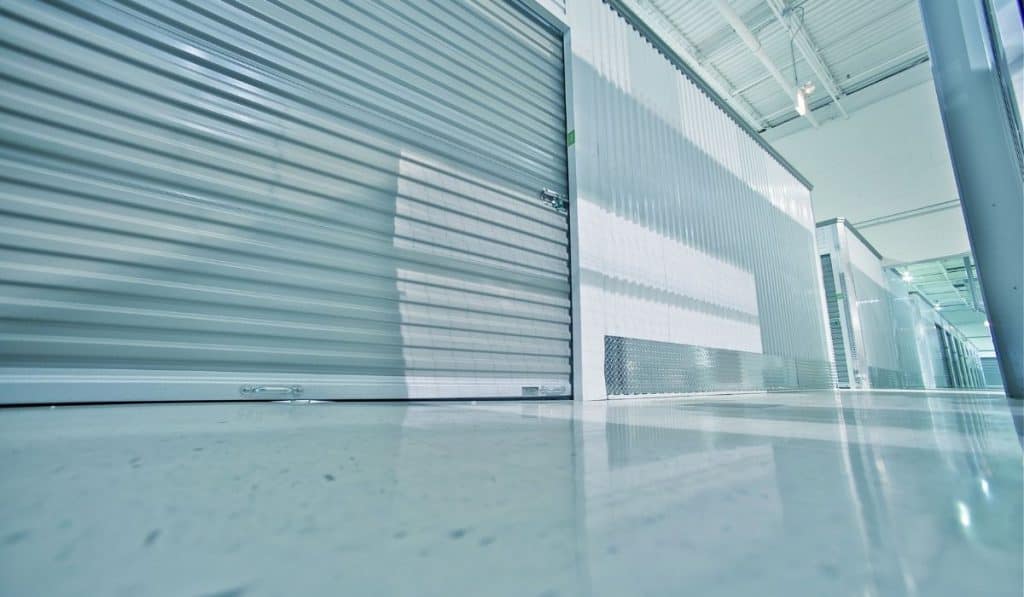Decades ago, amidst the heated battles between landlords and tenants over who should pay for repairs, cleaning, or property damage, insurance companies saw an opportunity. There had to be a way around the nasty phone calls and letters threatening a lawsuit.
Tenants wanted property owners and businesses to take responsibility for what they saw as neglect, and property owners felt that they shouldn’t be held liable for what they saw as tenant mistakes.
In response, insurance companies started offering renter’s insurance to cover the cost of repairing or replacing personal property, all while protecting the landlord from liability.
Fast forward to today and renter’s insurance is part of the majority of rental contracts on apartments, homes, retail outlets, storage units, and other property.
But can a storage facility require insurance?
In most cases, a storage facility can require its tenants to provide proof of insurance that would cover their items should damage or theft occur while their belongings are stored on the property. Many storage companies make having a renter’s insurance policy a requirement in the application process.
Without insurance, the lease is invalid. It’s a way to protect tenant property inside storage units and guard the business against any loss of income.
Let’s explore a bit about insurance for storage units and what you need to know about getting the right policy for your storage space.
What Is Tenant Insurance?
Tenant insurance is designed to cover whatever is inside a storage unit. In general, it covers the property in the event of theft, loss, or damage.
While storage unit coverage isn’t as common as some other types of insurance policies, they are becoming more common as more storage facilities make them mandatory.
First, Check to See If It’s Mandatory
Requiring renter’s insurance on a storage unit is pretty much industry standard at this point. There are some small, local storage unit operators who don’t have the resources to require and vet whether insurance is valid and the policy covers the mandated amount.
Most states allow storage companies to require insurance. It’s within their rights as a licensed business, and many facilities won’t rent you a storage unit until you provide proof of insurance.
Reasons Why Storage Unit Facilities Require Insurance
If you’re dealing with a seasoned storage company, they will have the data to know why insurance is so important. They’ve also got lived experience that helps them understand why insurance is so crucial. Here are some of the main reasons why they require insurance.
1. Security is a Priority
Modern storage unit companies go to great lengths to protect their property and their tenants’ valuables. They set up fences, place guards, install cameras, and have a slew of other security options in place.
It’s a deterrent, for sure, but it’s also there because crime does happen at storage units.
Though they have low crime rates, thefts and break-ins can occur. If something is stolen or damaged in a criminal event, insurance will cover whatever is lost.
2. Value is Sometimes Relative
Most people can figure out how much an old TV is worth, but what about family pictures or that table that your grandmother gave you before she passed?
Value is sometimes relative. What something is worth is different in the eyes of a storage facility manager and a tenant who owns what’s inside a unit. If you’ve got something valuable inside, an insurance policy will pay to replace it.
3. Weather Concerns are Real
Depending on where you live, weather can be a factor. For example, if your storage unit is in Florida, you could deal with heavy rains and flooding that damages property.
Snow can be another cause of damage. And what about things like tornados? Severe weather is often unexpected and can trigger serious damage. Insurance gives you and the facility ownership peace of mind.
These are just some of the reasons storage companies require tenant insurance. At the end of the day, they want to minimize their losses and your frustration should something happen to what’s valuable to you.
Also, insurance, as a business practice, is generally a smart move. It’s fairly affordable for tenants and prevents any unpleasant disagreements from arising if something in your unit is damaged.
Finding the Right Insurance for Your Storage Unit
Everyone is looking to save money, and it’s understandable why some storage unit tenants are frustrated by an insurance requirement.
Still, it doesn’t have to be super expensive, and you can find a good insurance policy for your storage unit that won’t cost you an arm and a leg.
7 Tips for Finding Storage Unit Insurance
Here are some tips on how you can get a great policy without spending a ton of money.
1. Ask your current insurance provider.
There’s a good chance your homeowner’s insurance provider, car insurance provider, or rental insurance company will add to your existing policy without much extra cost.
2. Your insurance policy may already cover a storage unit.
Sometimes, the policy you already have will cover what’s inside your storage unit. If it does, read that part of your policy just to make sure that you have the coverage you want.
Fairly often, existing insurance policies will cover property that is used or stored off-site. That means if you have furniture or jewelry, for instance, in your storage unit, your home owner’s insurance or existing renter’s insurance would cover what’s in there.
3. Make sure all of the important items are covered.
Some insurance policies won’t cover items that are for business use or are high-dollar items. You may have to get an extra insurance addendum to cover what you need.
The smartest thing to do is make an inventory list of what’s inside the unit or what will be placed there and then talk to your provider about whether it’s covered. Fill in any gaps on expensive items so you’re not surprised when you need to take advantage of your policy.
4. Ask the storage facility manager for recommendations.
Odds are the storage company you’re working with has talked to people without insurance a million times. By now, they probably have a handful of brokers and companies they can recommend to you that fit the lease requirements, or they may work with a provider to offer you insurance through the facility.
5. Consolidating your providers can save you money.
If you’ve currently got your HOI and your car insurance with different companies, needing storage unit insurance is the perfect time to see if you can get a discount by consolidating all three policies under the same roof. Ask them about a discount if you move over to them and price compare across the board.
6. Premiums go down over time.
The longer you have your policy, the more you’ll save on monthly or annual premiums. As your risk profile goes down, insurers will give you better deals.
They don’t come easy though, so you’ll have to call in every six months or so to check if you can lower your premiums.
7. Read online reviews to find a good tenant insurance provider.
These days, it’s easier than ever to find a good insurance company. Online reviews are the perfect way to make sure you’re not dealing with a company that is dishonest or charges too much. Spend some time reading others’ experiences and call the top few to ask for quotes.
Typical Storage Unit Insurance Rates
While an insurance requirement can be an added layer of red tape in getting a storage unit, they usually can be handled over the phone in minutes and won’t cost you a ton.
For $5,000 worth of coverage, you’ll generally pay less than $20 a month. Sometimes things like flood coverage will cost you a bit more, but it’s well worth the peace of mind.
As we’ve mentioned before, you’ll pay less the longer you have the policy, and price comparing will save you money.





